Search
Curiosity Created a Career: How New Faculty Member Alec Brandon Became an Economist
UNICON TDC 2025
UNICON TDC 2025
November 5 - 7, 2025 | Hopkins Bloomberg Center
555 Pennsylvania Avenue NW | Washington, D.C.
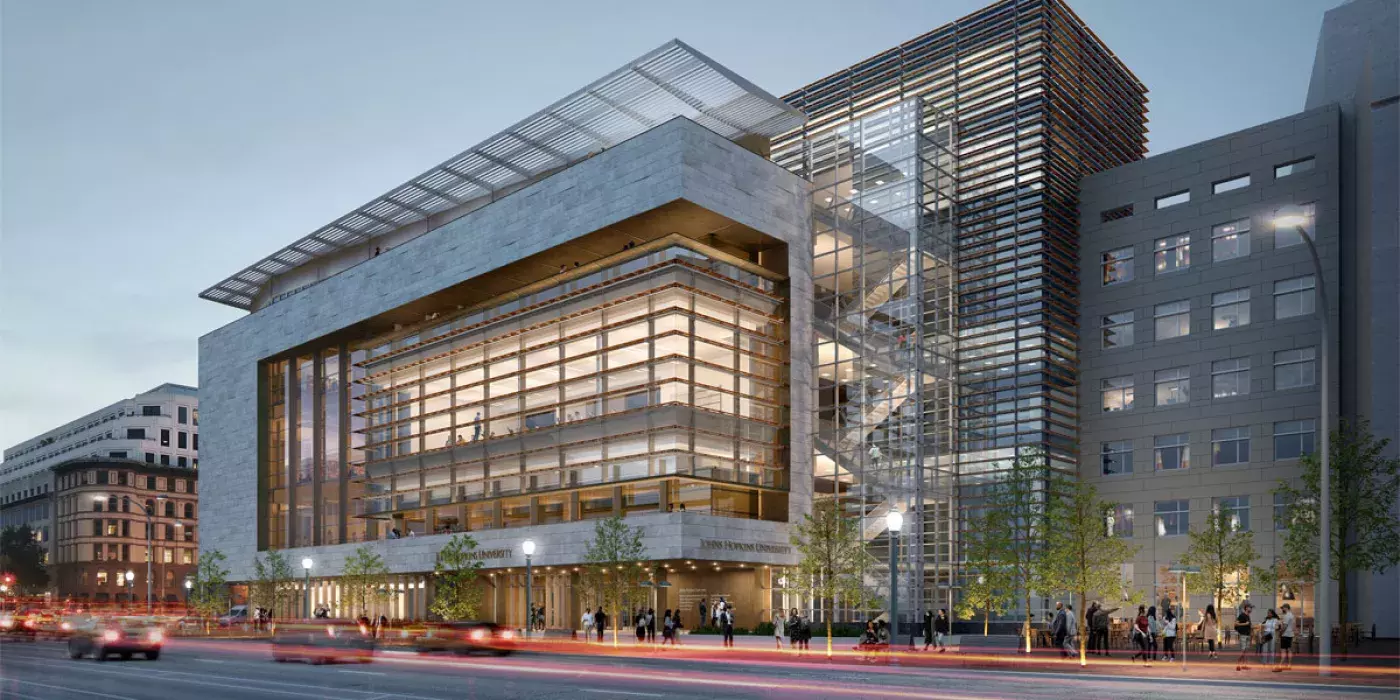
Early-Bird Pricing Now Available!
Doing Good: Collaborating for Positive Change and Meaningful Work
For the 2025 UNICON Team Development Conference, the team in the Office of Executive Education at the Johns Hopkins University Carey Business School will focus on our place at this moment in time, exploring themes like service, purpose, community, humanitarianism, and progress.
The conference will feature speakers from the JHU community as well as voices from the UNICON membership who inspire us with their efforts to advance humankind through policy, dialogue, research, arts, advocacy, and more. Our hope is that attendees leave the conference with a renewed sense of purpose and practical solutions to implement in their institutions, supporting stakeholders and advancing learners worldwide.
Schedule & Agenda
-
Wednesday, November 5th
10:00am
Check-in
Early conference check-in will be available on November 4th from 1p-3p in the lobby of the Hopkins Bloomberg Center10:45a-12:00p
Newcomer’s Session11:00a-1:00p
Light Lunch1:00p-1:30p
UNICON and JHU Opening Remarks1:30p-2:30p
Panel: Making Meaning with JHU experts2:30p-3:00p
Break3:00p-3:45p
UNICON Benchmarking Survey3:45p-5:00p
Unpacking the Benchmarking Report5:00p-6:30p
Cocktail Hour and UNICON Awards
-
Thursday, November 6th
8:15a-9:00a
Light Breakfast9:00a-10:00a
Introduction and Keynote Speaker
Joseph Victor Sakran, MD, MPH, MPA, Executive Vice Chair of Surgery, Johns Hopkins Medicine10:00a-12:00p
How I Built It: Presentations from UNICON members12:00p-1:00p
Lunch1:00p-2:00p
Reporting Out on Presentations2:00p-4:00p
How I Built It: Hackathon - From Opportunity to Solution4:00p-4:45p
Doing the Work Takeaways6:00p-10:00p
Dinner & Reception at Smithsonian National Museum of American History
-
Friday, November 7th
8:15a-9:00a
Light Breakfast9:00a-10:00a
Introduction and Keynote Speaker10:00a-10:45a
UNICON Research Report10:45a-11:15a
Coffee Break11:15a-12:15a
World Café on Building a Legacy12:15a-1:00p
Conference Closing
-

Susan Magsamen
Founder and Executive Director, Johns Hopkins University International Arts + Mind Lab
Susan is the founder of the groundbreaking neuroaesthetics initiative at Johns Hopkins University School of Medicine working at the intersection of brain sciences and the arts, examining how our unique response to aesthetic experiences can amplify human potential. She is also an award-winning author and an assistant professor of neurology. Learn more.

Wendel Patrick
Associate Professor, Johns Hopkins Peabody Institute
Wendel Patrick is an Associate Professor in the Department of Music Engineering & Technology at The Peabody Music Conservatory - Johns Hopkins University where he teaches “Hip Hop Music Production: History and Practice”, the first course of its kind to be taught at a major traditional music conservatory anywhere in the United States. Learn more.

Joseph Victor Sakran, MD, MPH, MPA
Executive Vice Chair of Surgery, Johns Hopkins Medicine
Dr. Joseph V. Sakran is a trauma surgeon, coalition builder, policy advisor, public health expert, and nationally recognized advocate for gun violence prevention. He is currently Director of Emergency General Surgery, Associate Professor of Surgery, and Associate Chief of the Division of Acute Care Surgery at The Johns Hopkins Hospital in Baltimore, Maryland. Learn more.

Anthony Watters
Interim Social Innovation Lab Director, Johns Hopkins University Pava Center
Anthony is a Carey Business School alum and the founder of More Watter co., a health and wellness company that uses exercise and community to improve health outcomes for people with chronic conditions. He is also the co- founder of It Takes One inc, a non-profit organization that provides scholarships for Baltimore City high school graduates. Learn more.
Planning Your Trip
-
The conference begins at 1pm on November 5th and ends at 1pm on November 7th.
Airports:
- Ronald Reagan Washington National Airport (DCA) – 3.6 miles (5.8 km) from Bloomberg Center
- Dulles International Airport (IAD) – 25 miles (40 km) from Bloomberg Center
- Baltimore/Washington International Thurgood Marshall Airport (BWI) – 31 miles (50 km) from Bloomberg Center
Hotels
Cost
Distance from Bloomberg Center
Kimpton Hotel Monaco Washington DC
$$ 0.3 Miles (0.05 km)
Hyatt Regency Washington on Capitol Hill
$$ 0.6 Miles (0.7 km)
Motto by Hilton Washington DC
$ 0.5 Miles (0.8 km)
Hilton Washington DC Capitol Hill
$$ 0.7 Miles (0.83 km)
Grand Hyatt Washington
$$$ 0.7 Miles (0.9 km)
Washington Marriott at Metro Center
$$$ 0.8 Miles (1.3 km)
Discounted rates are available at the hotels listed above. To receive the special rate, please contact the hotel directly and mention Johns Hopkins University when making your reservation.
For your convenience, the Hyatt Regency Washington offers a direct booking link that includes the pre-negotiated rate.
Getting Around:
- Click here to access the DC Metro Trip Planner
Note: Parking near the Bloomberg Center is available via public parking garages
-
When it comes to activities, few cities can match Washington, DC. World-famous institutions of government offer regular tours, many famous museums are to be found here, and the city offers an unparalleled schedule of major social, cultural, political, and education events throughout the year.
-
Is parking available near the conference?
Yes, parking is available via public parking garages near the Bloomberg Center. Daily rates will vary by location.Is early conference check-in available?
Early conference check-in is available November 4 from 1:00-3:00pm at the Johns Hopkins Bloomberg Center. Otherwise, check-in will be available November 5 starting at 10:00am.How do I request an invitation letter for my VISA submission?
Please email unicontdc2025@jhu.edu and we will prepare a VISA letter.What is the cancellation/refund policy?
Conference participants paying by credit card can be refunded up to 120-days after the transaction date. Refunds of wire transfers and checks may take up to 3-months.Registrations are transferrable to other team members by contacting unicontdc2025@jhu.edu.
May I bring a guest?
Conference sessions and events are for registered TDC participants only.Who can I contact with questions?
Please email us at unicontdc2025@jhu.edu.
Johns Hopkins University Bloomberg Center
This year's conference will be held at the Hopkins Bloomberg Center, located at 555 Pennsylvania Avenue NW in Washington, DC. Featuring soaring views of the United States Capitol and a light-filled atrium, our 10-story steel-and-glass location sits on one of the world’s most iconic avenues. Our nation’s capital city is a hub of innovation, collaboration, and influence, making it the perfect backdrop for a conference focused on meaningful change. The Hopkins Bloomberg Center is a state-of-the-art facility designed for cutting-edge discussions and centrally located with easy access to local transportation, accommodations, and world-class cultural activities.
About the Carey Business School
Grounded in the Johns Hopkins legacy of excellence and research, Johns Hopkins Carey Business School shapes business leaders who seize opportunity, inspire change, and create lasting value. We bring a modern business perspective to Johns Hopkins by shaping leaders who build for what’s next®.
With locations in Baltimore, MD, and Washington, D.C., Carey offers full-time, part-time, and online MBA and MS degree programs, and executive education programs for the global marketplace that are data-driven and built to compete in an everchanging business world. Carey’s faculty are thought-leaders, trailblazing what’s next in the business world and in the classroom. And at Carey, we learn by doing. For more information, visit carey.jhu.edu.
-
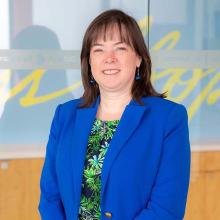
Michelle Barton, PhD
Associate Professor of Practice, Johns Hopkins Carey Business School
Dr. Michelle Barton is an Associate Professor of Practice at the Johns Hopkins Carey Business School with expertise in organizational and team resilience, managing uncertainty, and interpersonal effectiveness during adversity. Dr. Barton’s work examines how groups manage dynamic and uncertain situations as they are unfolding. Drawing from wildland firefighting, high tech entrepreneurship, expedition racing and military operations, her research considers how groups make sense of ambiguous situations, how they coordinate, learn and share knowledge in the midst of confusion and how they mitigate and recover from adversity. She is especially focused on the relational dynamics that enable these practices. Learn more.

Alexa S. Chilcutt, PhD
Executive Education Faculty, Johns Hopkins Carey Business School
Dr. Alexa Chilcutt delivers executive education courses on the topics of interpersonal and team communication, presentation skills, and impression management and executive presence. Alexa is the co-author of, "Engineered to Speak: Helping You Create and Deliver Engaging Technical Presentations" published by Wiley IEEE PCS Professional Engineering Communication Series. She has also published in MedEdPORTAL, Journal of American Dental Association (JADA), Association of General Dentist's Impact magazine, Public Relations Journal, and Georgia Academy of General Dentistry's Explorer magazine. Dr. Chilcutt was an Associate Professor and Director of The Public Speaking Program at The University of Alabama from 2010 - 2021 and has served as the Communication Instructor for UA's aeronautical and mechanical engineering NSF funded Research Experience for Undergraduates (REU) program since 2011. Learn more.
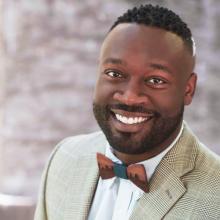
Carl DuPont, DMA
Executive Education Faculty, Johns Hopkins Carey Business School
Carl DuPont is an artist, innovator, and educator with a creative approach to improving peak performance for individuals, organizations, and communities. He leverages his expertise to implement strategic initiatives at the intersections of communications, diversity, equity, inclusion, access, and sustainability. This includes training, programming, talent acquisition, executive presence, and utilizing holistic evidence-based solutions for organizations. His scalable strategies have been tailored to clients ranging from small cultural institutions to Fortune 100 companies. DuPont’s unique approach draws on his experience as an international performer and published author, as well as his curiosity as a life-long learner to make the aspirational actionable. Learn more.
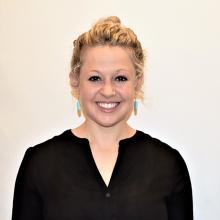
Anna Fitzgibbon, MBA
Executive Education Faculty, Johns Hopkins Carey Business School
Anna Fitzgibbon is the Founder and Owner of OutGrowth. As an experiential education expert, Anna is a die-hard advocate for immersive programming and a re-imagined approach to professional development. With experience traveling and working in over 25 countries, she earned her MBA from The Johns Hopkins Carey Business School, and has a professional background in program development and facilitation (design thinking, corporate team-building and wellness, project-based learning, higher education), sustainable community development and co-creation, event management, and outdoor education.
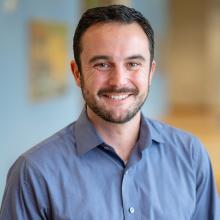
Erik Helzer, PhD
Associate Professor of Practice, Johns Hopkins Carey Business School
Dr. Erik Helzer is an Associate Professor of Management and Organization at the Johns Hopkins Carey Business School and the Executive Education Faculty Director for Leadership Curriculum. His research focuses on three facets of practical wisdom: ethical behavior and moral judgment, self-knowledge, and personal agency and adjustment. He develops and applies psychological, organizational, and behavioral science insights to understand the cultivation of practical wisdom for leading in organizations. He has worked with both public and private organizations to offer custom programs for employees on these and other topics, providing knowledge and practical skills that are grounded in behavioral science. Learn more.
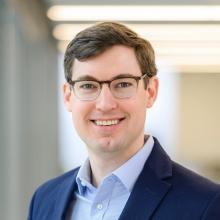
Christopher G. Myers, PhD
Associate Professor and Faculty Director of the Center for Innovative Leadership, Johns Hopkins Carey Business School
Dr. Christopher Myers is an Associate Professor of Management & Organization and the founding Faculty Director of the Center for Innovative Leadership at the Johns Hopkins Carey Business School, and holds joint faculty appointments in Anesthesiology & Critical Care Medicine at the Johns Hopkins School of Medicine and in Health Policy and Management at the Johns Hopkins Bloomberg School of Public Health. His research and teaching focus on individual learning, leadership development, and innovation, with particular attention to how people learn vicariously and share knowledge in health care organizations and other knowledge-intensive work environments. Learn more.
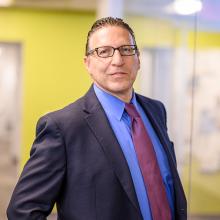
Adriano Pianesi, MBA
Adjunct Professor, Johns Hopkins Carey Business School
Adriano Pianesi has 20 years of leadership development, team coaching, and change management experience built on capacity development, possibility thinking, and sound strategy. An ICF-certified coach, Pianesi holds an MBA in Communication and Group Dynamics from the University of Milan. He has trained at Harvard Business School, Harvard Kennedy School, and the Art of Hosting, where he refined his repertoire of experiential and innovative facilitation and teaching practices. He is also a faculty member of the Krieger School of Arts and Sciences in the MA in Non-Profit Management where he supports students becoming agents of change through mission-based work. Learn more.
-
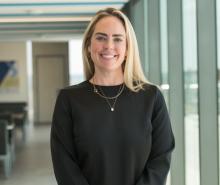
Julia Schreck
Senior Director of Executive Education
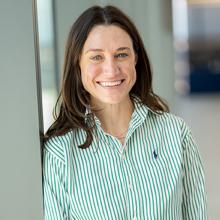
Amy Kuebler
Director of Learning Solutions, Executive Education

Nicole Marris
Associate Director, Executive Education
Registrations Are Now Open
UNICON does not provide its mailing list to outside parties. Should you or anyone on your team receive an email suggesting you can purchase such a list, be assured that it is a phishing message. Do not open the email or any attachment or link in the email and delete the email immediately.
Recruitment and offer policies
Recruitment and offer policies

Corporate and Strategic Partnerships
Recruiting policies
To achieve the best recruiting results, recruiters should adhere to Johns Hopkins Carey Business School’s recommended recruiting dates. Employers engaged in recruiting early in the fall or spring semesters or during the January intersession should make their recruiting information available to the Employer Relations team at the earliest possible time so that proper promotion can take place.
Interview policies
-
Students and employers are expected to prepare for and keep all interview appointments. A student who misses an interview is asked to write a letter of apology to the recruiter.
Employers are asked to re-confirm their interview date one week prior to their scheduled day. Last-minute changes and cancelations are disruptive to our students and potentially damaging to an employer’s reputation on campus. Please notify the Career Development Office immediately if a change is required.
-
Second-round interviews can be held on campus or at the company’s offices. We recommend companies provide notice of at least three business days for students to travel for second round interviews being held off-campus so they have ample time to rearrange prior commitments. In addition, companies may host a pre-interview reception or dinner before conducting interviews. We can help encourage participation and avoid conflicts if we know your plans ahead of time.
Offer policies
-
Making a job or internship offer to a student is a significant commitment between an employer and a student. To ensure fairness to both, please observe the following guidelines:
- If your organization is participating in on-campus interviews, no initial employment interviews or offers can occur prior to set on-campus interview dates. Check with Career Development staff to confirm the date.
- All offer letters need to be documented via email and/or hard copy. The beginning of the offer period coincides with the date of the offer letter.
- First year students should be given at least three weeks to consider an internship offer.
- Summer interns may receive an offer prior to the official start of the second year recruiting season from the employer where they interned.
- It is recommended that former interns not be prohibited from pursuing other opportunities and should be given until December 1 to consider full time offers, unless an alternative arrangement is agreed to by both parties.
- Second year or graduating part-time students should be given at least four weeks to consider a full-time offer.
This timeline does not preclude longer periods for offer consideration. It is important that both parties keep an open line of communication throughout the job offer and decision process.
-
Extending an exploding offer, defined as giving a candidate an unreasonably short period of time to accept an offer before it is revoked, is prohibited. In addition, if a student is taking an unreasonably long period of time to respond to an offer, please contact the Career Development Office so we may address the issue with the student. It is not uncommon for companies to offer financial incentives for an early decision, especially for full-time offers, but as long as the timelines are honored, this is not considered an exploding offer.
-
If an employer must withdraw an offer, the employer should contact the Carey Career Development Office immediately. This is a serious matter that can significantly harm an employer’s brand on campus and subsequent ability to recruit students. Similarly, if a student reneges on an acceptance of employment, the employer should notify the Carey Career Development Office. Our office will thoroughly review the situation and take appropriate action. We consider reneging on an acceptance a serious matter.
Other Policies, Expectations and Best Practices
-
Nondiscrimination policy
Carey Business School makes its facilities and services available only to employers who do not discriminate based on race, ethnicity, religion, sex, sexual orientation, marital status, age, national origin, military service, or disability. Any employer who makes use of the university’s facilities to interview students agrees to meet in good faith with any student who has signed up within the allotted time for an interview and who meets the employer’s legitimate employment qualifications.
DEIB Recruitment Expectations
At the Carey Business School, diversity, equity, inclusion, and belonging are woven into our organizational culture. The Career Development Office expects all employers who recruit talent from Carey, accessing our resume books, Handshake platform and participating in employer engagement activities to share in our commitment to fair and inclusive recruiting and hiring practices. Carey is committed to recruiting a diverse group of students, and all Carey students should feel welcome, safe being themselves, and supported through interactions and communication with employer partners.
Best Practices for Fair and Inclusive Recruiting
- Ensure all talent acquisition staff are trained on inclusive and equitable recruiting practices, to assure that the process of posting jobs/internships, sourcing candidates, and reviewing candidate qualifications is not discriminatory in any way.
- Objectively review candidate application materials with an open mind, focus on skills earned through work, and curricular, and co-curricular experiences. Be aware of and attempt to remove bias in the review process.
- Use a rubric and consistent interview questions with clearly defined standards when evaluating all candidates to mitigate bias.
- Be prepared to share with candidates what your organization is doing to create an increasingly diverse, equitable, and inclusive workforce.
- Consciously provide interns and employees with educational opportunities to develop diversity, equity, and inclusion competency.
-
An internship is a career-related experience that allows students to apply the knowledge and skills they’ve developed from their academic studies in a practical, workplace setting. All internships should provide students with exposure to an occupation, industry, or career field and have a clear purpose and focus. Internships typically involve a student working in a professional setting under the supervision and monitoring of practicing professionals. As such, employers are expected to be invested in the career exploration and professional development of their interns. (Adapted from the National Association of Colleges and Employers)
Criteria for internships benefiting students’ career development
- The internship’s central focus is educating students to use the critical thinking and communication skills they’ve developed at Carey Business School in a professional environment.
- The intern receives regular and on-going supervision, feedback, coaching, and mentoring.
- The intern contributes to the organization in a value-added, meaningful way.
To do this, employers should:- Create a job description that outlines the expectations and objectives of the internship. This provides a framework for students to learn about your industry and affirms the value of the actual work they complete. Having a specific project for the student to complete is an excellent way for students to develop career-related competencies while contributing to your organization.
- Connect the internship experience to learning. An internship should provide the student with an opportunity to develop career-related skills and competencies. These competencies should be transferable to other organizations or even other industries in order to foster the student’s career development. Students want to learn about organizational structure, engage with a variety of professionals, and receive insight into pertinent topics. Clear transparent communication is important for students to learn about your organization, field, and the world of work.
- Plan to supervise the intern. Supervision is the foundation for a successful internship. Setting clear expectations, engaging in regular follow-up and providing feedback are essential components of a great internship experience for both student and employer. Due to the educational nature of internships, employers provide a greater level of supervision to interns than employees. Providing opportunities for students to reflect on their internship experiences during supervision is an excellent way to foster to their career development.
-
As an employer, it is your responsibility to be aware of the federal government’s requirements for unpaid internships. For-profit organizations should review the Department of Labor’s Internships and the Fair Labor Standards Act. Carey Business School does not award academic credit for internship experience.
For more information on internship best practices and federal regulations, explore the links below:
-
Third-party recruiters may utilize Carey Business School’s recruiting services in line with the following guidelines:
- Third-party recruiters will not disclose student information in any way to any employer or other person or entity without obtaining prior consent from the student.
- Third-party recruiters attending recruiting events will disclose the names of the represented employers to the Career Development Office if requested.
- Third-party recruiters may post full-time jobs and internships in Carey Business School’s Handshake system. Agreement to the Johns Hopkins University Statement of Understanding and Compliance for Third-Part Employers is required before doing so.
-
If you require transcripts, please notify the student in advance, who can then authorize release by the Registrar.
Carey Business School does not disseminate personal information regarding a degree candidate. Such restricted information includes grades, test scores, and photos.
-
Carey Business School will not be held responsible for false information or misrepresentation provided by a student during the recruitment process, either by way of a student’s résumé or during the interview process.
-
Students may not be asked to miss class for an interview.
-
It is important that both the employer and student keep an open line of communication throughout the interview, offer, and evaluation processes. All companies should establish and maintain, at most, a four-week window of communication with candidates throughout the process. For example, if your interview was held February 13, please send a follow-up communication no later than March 13, even if the message simply states your process is continuing and that candidates will be notified by an approximate date.
All candidates not selected for further consideration also should receive notification of their final status once the selection process has been concluded.
-
When adverse actions regarding recruiting policies and expectations are reported to Carey Business School, the school evaluates each situation on a case-by-case basis, assess the facts from both student and employer perspectives, and attempts to resolve the situation. Carey Business School reserves the right to restrict access to students by employers that violate our policies and expectations.
Carey Business School also asks that companies who may take an adverse action to inform the school beforehand to minimize the consequences for our students. Such actions have served to create goodwill between both parties.
Furthermore, we request that employers notify the Career Development Office of any students who have accepted more than one job offer or are continuing to search for positions after accepting an offer. Such behavior is considered to be a violation of the school’s code of conduct.
-
For international recruiters: International companies or divisions of companies that recruit at Carey Business School may find it more practical to interview first- and second-year students during the same visit to the university. As a result, companies or divisions of companies based outside of the U.S. may interview and make offers to first- or second-year students outside of our regular recruiting calendar. We encourage you to keep the lines of communication open with the Career Development Office and candidates, working with students to find a mutually agreeable decision date.
For affinity group conferences: Affinity group conferences such as the National Black MBA Conference and the ROMBA Conference have become increasingly popular for recruiters and students. Because these events occur very early in the on-campus recruiting process for second-year students and well in advance of the recruiting process for first-year students, we strongly suggest that any offers made to students as a result of these events remain open until December 1, for second-year students and March 1, for first-year students.
Recruiting Best Practices
-
- Employers must not require a financial investment or payment by the student or alumni for employment or placement. Under no circumstances should fees be charged to students or alumni. Carey Business School will not post any opportunities that require students or alumni to pay fees.
- All job and internship listings are posted at the discretion of Carey Business School. We reserve the right to choose to not post a position if it does not appear to support the best interests of students and/or the University.
- Carey Business School recommends that employers list work eligibility requirements in order to ensure that students understand any potential limitations on employment. It is the employer’s responsibility to ensure that candidates meet their work authorization requirements.
- Carey Business School will not advertise positions that restrict consideration to specific student populations.
- Carey Business School will not post anonymous ads or positions submitted by third party recruiters who do not identify themselves as such in their job announcements or who do not provide us with client contact information if requested. Refer to Third Party Recruiter section above.
- Carey Business School makes no guarantee that all jobs posted will be filled.
-
- Recruiters cannot ask questions during the interview that could be construed by a candidate as unethical, illegal, or in violation of personal privacy. Such questions include inquiries about age, marital status, religious preference, and sexual orientation.
- All recruiters must adhere to the standards set forth in Title VII of the Civil Rights Act of 1964 (as amended in 1972), as well as all guidelines established by the Equal Employment Opportunity Commission. Specifically, no firm should discriminate against any candidate on the basis of that individual’s sex, race, color, religion, age, handicap, national or ethnic origin, or sexual orientation.
- Recruiters should not ask students to evaluate the skills or appropriateness of a fellow student for employment.
- Recruiters should inform students of their application and candidate status, whether positive or negative, in a timely manner. Undue delays or failure to communicate to declined candidates negatively affect a company’s reputation among students.
Carey Business School works diligently to meet the needs of recruiters and students. When making reservations, companies and recruiters should review the confirmation and make any necessary changes immediately. Companies and recruiters are expected to follow the final interview schedules. Changing the final interview schedule can significantly disrupt students’ prior academic and interview commitments and affects the company’s reputation among the students.
-
- Keep your profile and résumé up to date with accurate work experience and education information.
- Respond to all invitations from companies offering an interview in a timely manner (within 24 hours).
- Be prompt and well prepared for all interviews.
- Use business professional communication in all correspondence.
- Accept offers in good faith. An accepted offer is binding and assumes that you are no longer job searching. Students are expected to withdraw from all applications and are not permitted to interview with additional firms after accepting an employment offer. This is standard professional expectation at all business schools. If you renege on an offer, the Carey Business School reserves the right to take appropriate action.
- Report your employment status, including received and accepted offers, through Carey’s secure outcome survey tool.
Questions about hiring Carey students?
Full-time MBA Program
Full-time MBA

Grounded in analytics and leadership, the full-time MBA gives you the tools to translate data insights into action and drive impact in ever-changing markets. Newly STEM-designated.
Gain the analytical and leadership skills employers demand with the Johns Hopkins MBA. Harness technological advancements through classroom teaching, experiential learning, and co-curricular experiences. And graduate ready to lead across industries.
Choose your specialization
Choose between two specializations: Analytics, Leadership, and Innovation or Health, Technology, and Innovation. The specializations overlap at key points in the curriculum, and you will continue to build connections with your peers throughout the program.
Your student journey starts here
From the start of your application to start of your new job, see how our team supports your entire student journey.
Program Details





Scholarships & Financial Aid
Program Features
With the analytic and leadership skills to propel your career, an MBA from Johns Hopkins is just the beginning. Ranked as one of the Top 10 Business School’s to Watch by Poets & Quants, Carey delivers a transformative learning experience to help you succeed in the business world. And as one of the first 10 American business schools to claim a STEM designation for its entire Full-time MBA program, your degree will prepare you with advanced knowledge in data analysis and complex problem-solving.
Build the analytic skills to extract breakthrough business insights from big data. Strengthen your leadership skills to drive change in the fast-moving global market. Immerse yourself in experiential learning projects with businesses where your insights have immediate impact. Join the world-class Johns Hopkins ecosystem and graduate in demand–87 percent of Carey graduates accept full-time job offers within 90 days of graduation and our alumni see an average salary increase of 139 percent within three years of graduation. Take the next step as a data-driven leader and together, we will build for what’s next.
Women for business
For the fifth-straight year, over 50 percent of Carey students in the full-time MBA program are women, placing Carey at the top of Forté Foundation’s list of business schools that launch women into successful careers.
Innovation Field Project
As the signature project for the full-time MBA program, immerse yourself in an eight-week project-based course with three to five days in the field to find an innovative solution to a complex business problem.
Johns Hopkins ecosystem
An MBA is more than just the classroom. At Carey, you’ll join a network of over 25,000 alumni and gain exclusive access to the expansive Johns Hopkins ecosystem of more than 250,000 alumni spanning across the globe and industries.
An MBA accessible to everyone
At Carey, we understand that financing your MBA can be daunting. That’s why nearly 100 percent of our full-time MBA candidates receive financial support, including awards up to full-tuition and stipends through merit- and need-based scholarships. And through new philanthropic and institutional resources, all domestic candidates may also be considered for need-based financial aid that covers up to the full cost of attendance.
-
Read the story
Our Full-time MBA Class of 2026 students hail from diverse fields including healthcare, technology, engineering, and social impact. The Class of 2026 is uniquely positioned to leverage this environment to create meaningful change, driven by a shared passion for enhancing healthcare, advancing technology, and making a difference in their respective fields. Together, they form a community rooted in purpose and poised to lead in the evolving landscape of business and health. Read on for their stories.
Working in the construction industry, Dana Blackwood (MBA ’14) wanted to build upon her technical skillset. Now, with credit to the Johns Hopkins MBA, Blackwood leads business development pursuits and teams of people in her position at Turner Construction Company.
-
- 326 average GRE
- 47% female / 53% male
- 3.38 average undergraduate GPA
- 6.4 average years of full-time work experience
- 12 countries represented
Curriculum
Develop the analytic skills to anticipate future market trends and the leadership skills to implement data-driven change. Through an engaging curriculum and immersive experiential learning opportunities, you will gain the foundational skills employers demand. Customize your journey by selecting a set of electives, co-curricular activities, and experiential learning opportunities based on your unique strengths and interests. Small class sizes empower you to ask more questions, receive personalized feedback, and work closely with faculty experts.
In the second year of the program, benefit from a tailored course schedule that fits your professional interests and goals. This unique opportunity allows you to interact with Carey students from all programs and get involved in more Johns Hopkins experiences, such as Johns Hopkins Technology Ventures and Hexcite.
Foundations Week
Start your time at Carey Business School with Foundations Week. Network with your new peers, launch your career development, prepare for your courses in skills boot camps, and explore the world of experiential learning.
Storytelling boot camp - This session is an opportunity to connect with your Carey Career & Life Design Coach. You’ll continue to hone your story about your professional journey to Carey and what you’re seeking to gain from your MBA, so you’re career ready from day one.
Business Communication boot camp - This session prepares you for one of your first classes in the program, Business Communication. Learn the basic components and skills you'll need to impress audiences.
Quantitative Skills boot camp - This optional, two-day boot camp focuses on the basic quantitative skills needed for your core microeconomics course. Refresh your knowledge of topics such as the equation of a line, non-linear functions, graphing lines and curves, exponents, and calculus, with both lecture and interactive problem-solving.
Introduction to experiential learning - In this session, benefit from the Johns Hopkins ecosystem by working in teams to help a Johns Hopkins partner capitalize on a business opportunity.
-
Foundational courses
All foundational classes challenge you to understand and live out Carey Business School’s values: boundless curiosity, relentless advancement, unwavering humanity, and collaborative leadership. Courses include:
- Accounting Foundations
- Business Communication
- Behavioral Science: Leadership and Organizational Behavior
- Behavioral Science: Leading Change
- Behavioral Science: Negotiating Collaboratively
- Competitive Strategy
- Data Science: Statistics
- Finance
- Marketing Management
- Microeconomics and Market Design
- Operations Management
Core experiential learning courses:
Experiential learning electives:
- Advising Project Teams
- Applied Behavioral Strategy for Organizational and Social Impact
- City Lab
- Leadership Development Expedition
Customized electives
Electives are your opportunity to differentiate yourself and become an expert in your field. Both specializations–Analytics, Leadership, and Innovation and Health, Technology, and Innovation–are customized to meet your goals. Choose electives you want to focus on, like consulting, finance, organizational leadership, marketing, or operations management. Or choose a combination of electives across any of the career areas to build diverse skills and identify insights across industries.
Selection of electives by career focus:
CONSULTING
- Global Strategy
- Strategic Human Capital
- Strategy Consulting Practicum
- Artificial Intelligence
FINANCE
- Advanced Corporate Finance
- Cryptos and Blockchain
- Financial Modeling and Valuation
LEADING ORGANIZATIONS
- Effective Teaming
- Leadership Development Expeditions
- Managing in a Diverse Global World
- Power and Politics
MARKETING
- Marketing Research
- Marketing Strategy
- Social Media Analytics
OPERATIONS MANAGEMENT
- Advanced Business Analytics
- Design Lab
- Global Supply Chain Management
- Managing Complex Projects
Specific courses and elective offerings may change.
-
The Student Managed Investment Fund course, funded through generous donations, offers students the opportunity to learn real-world investment management techniques through hands-on experiences managing real assets. Students work collaboratively in small teams to carry out investment research, make trade recommendations, and execute trades approved by their student-run investment committee.
The course approaches investment management from a practitioner’s perspective, covering both necessary quantitative tools and qualitative decision-making processes. Students will review the theoretical foundation of investments, practical applications in managing investment portfolios, and ethical decision-making practices. This advanced experiential learning program helps students acquire “job-ready” skills for the investment management industry.
Program Comparison
- In-person classes
- Courses held in Baltimore, MD
- STEM-designated curriculum
- Complete degree in two years
- Online, flexible format
- Complete degree in two to three years
- Asynchronous and/or fully synchronous courses
- Optional in-person experiences
Connect with a Carey student or alumni
Our students come from all over the world and represent all of the different graduate business programs we have here at Carey. Connect with one of them directly to learn more about life at Carey.